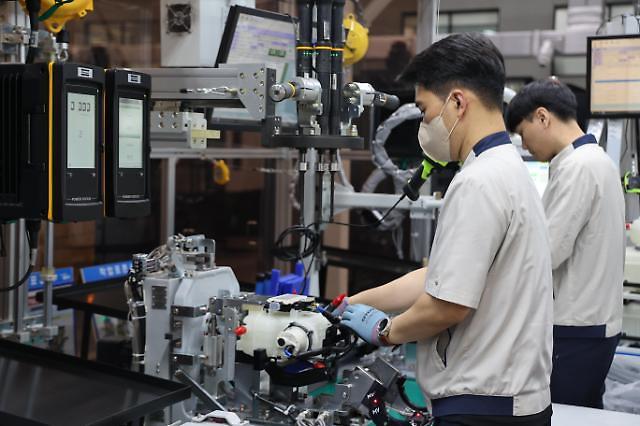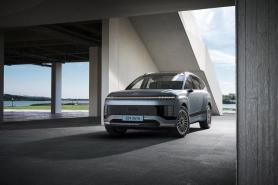
[Courtesy of Hyundai Wia]
Heat management is an important aspect in the operation of an EV. When an EV's parts are heated, the overheating could lead to degraded performance or malfunction of parts. In the worst-case scenario, uncontrolled heat could build up in the battery block to cause combustions. Normally, a large fan is attached to an internal combustion engine and turns when the engine is operated to cool down metal components.
However, it is hard for EVs operated using electric motors to manage heat because their batteries, motors, and other components generate heat but do not have fans to cool them down. A heat control module normally consists of a network of a pump and metal pipes filled with a coolant or water. A coolant hub pushes water or coolant down pipes that come in direct contact with parts such as battery packs and processing modules to draw heat and manage the temperature.
Hyundai Wia said that the company started the mass production of a coolant hub module for the first time as a South Korean car parts maker. Up to 210,000 units will be produced at a plant located in the southern port city of Changwon and the module will be fitted into Hyundai's compact sport utility vehicle (SUV) Kona and EV9, a full-sized SUV by Kia.
Starting with the mass production of the coolant hub module, Hyundai Wia will develop an integrated heat management module that will manage motors, batteries, and air conditioning by 2025.
Copyright ⓒ Aju Press All rights reserved.




